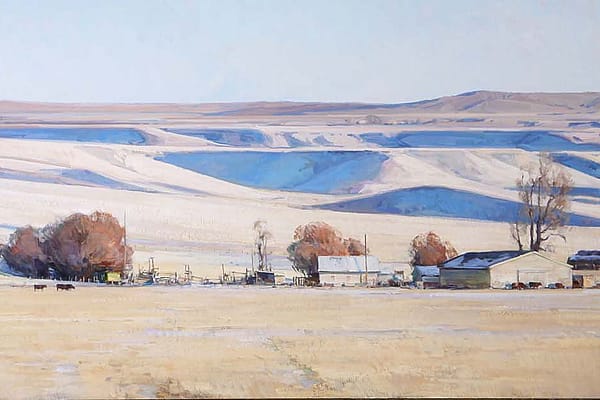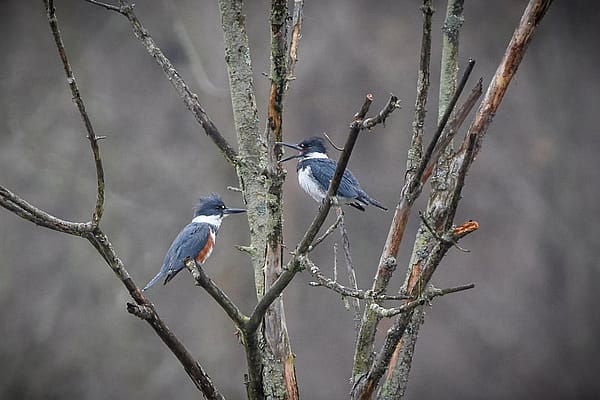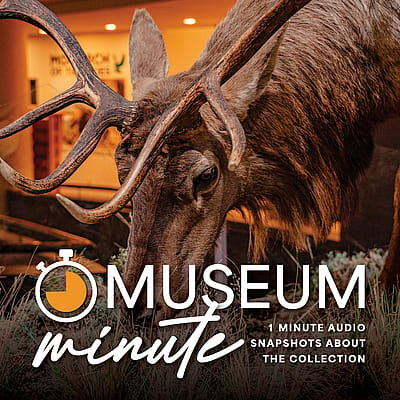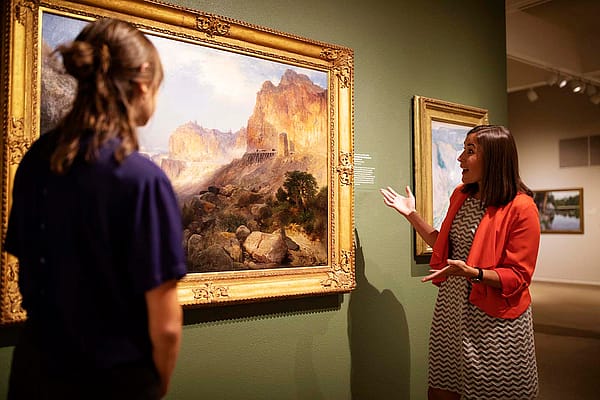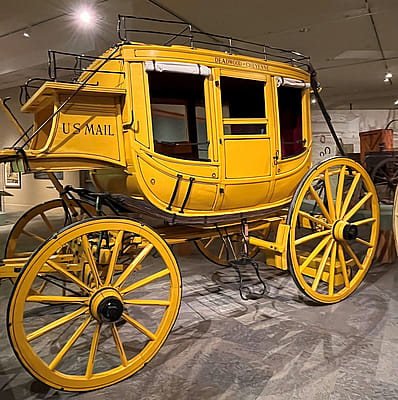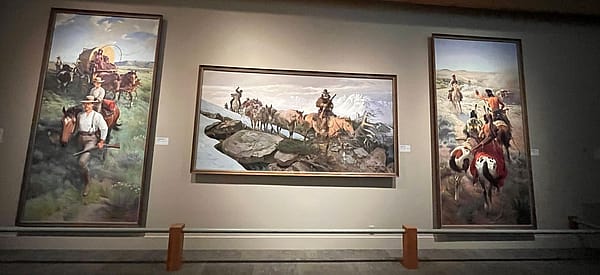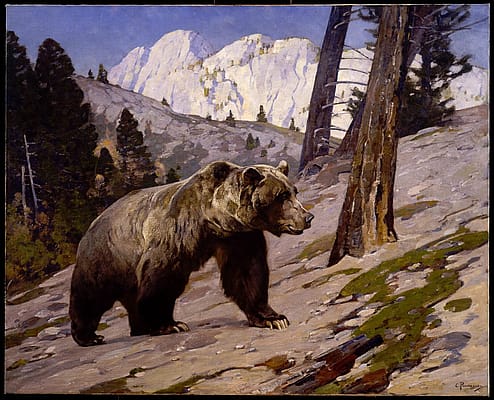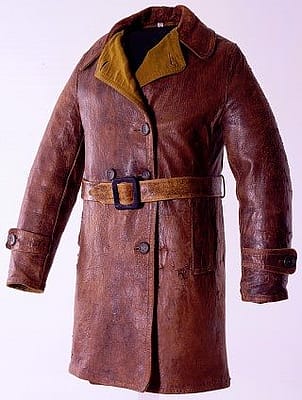
The Spirit of the Unconquerable West

Here at the Buffalo Bill Center of the West, we celebrate the “Spirit of the American West” — defined as “the spirit of optimism itself. “We view this “Spirit” as something tangible, precious, and worth sustaining from one generation to another.
As a quintessential westerner, Edwin Lester Dana (1864 – 1946) appreciated the potency of that “Spirit of the American West.” Dana was born in California, where his parents had moved from Illinois in 1862 after his father was “inoculated with the bacillus of the gold fever,” as Dana later recalled. Two years after Edwin came along, the Danas moved to Montana, after his father “was again seized with the spirit of adventure.” Once more, it was gold that lured him. For more than a decade, the elder Dana pursued its elusive glint across the Treasure State, landing occasional jobs along the way.
Finally, in 1878, the Danas wound up on a cattle ranch along the Little Big Horn River in southeast Montana, near Fort Custer, where Mr. Dana “had been given a billet to furnish milk and butter to the troops.” It was there that Edwin L. Dana, or “E.L.” as he went by, made his start. Carefully saving his earnings from tending milk cows, in 1887 E.L. bought a small herd of cattle and leased grazing lands on the Crow Indian Reservation. These modest beginnings were the start of something big. Within thirty years, Dana had become one of Montana’s leading “cattle kings.” His ranch holdings in Montana and Wyoming totaled several hundred thousand acres, and he owned one of the largest purebred Hereford herds in America.
In his autobiography, published in the May 1935 issue of Live Stock Markets, Dana paid homage to what he termed “The Spirit of the Unconquerable West.” “I was born in the sign of Taurus, the bull,” Dana wrote, noting how his horoscope said “that I would succeed at anything I undertook, because of dogged perseverance.”
Dana then offered a litany of sorts in which he sought “to convey to the younger generation, and recommend to them for participation” in aspects of “Western life” which brought him “pleasure, even exhilaration”:
- Irrigating [with] a shovel, putting miracle performing water on thirsty crops of wheat, oats or alfalfa.
- Buying, raising and growing cattle;
- Buying, farming, and irrigating land to raise hay and grain for their winter protection;
- Riding the range on roundups; roping, wrestling and branding cows, bulls, steers and calves;
- Standing guard on all kinds of herds by day and by night in all kinds of weather;
- Taking part in stampedes of herds of beef cattle on the trail to stockyards a hundred miles away to be loaded on cars for market in Chicago.
- Accompanying the cattle on the way to market.
In short, Dana wrote, “I have found my recreation, my principal profit, and my enjoyment in my work—real honest-to-God hard work—as a cowboy, cattle and ranch man.”
Many westerners have paid tribute to that enduring “Spirit of the American West,” but few have been more eloquent about it than Edwin L. Dana.
Written By
John Rumm
John C. Rumm is the former Director of the Curatorial Division and Curator of Public History at the Buffalo Bill Center of the West. He did his graduate work at the University of Delaware, earning both a Master's degree and a doctorate in American History, and has spent most of his career working in museums and historical agencies. After living many years in the Midwest and East, he relocated to Wyoming in 2008 and deeply loves the American West.

